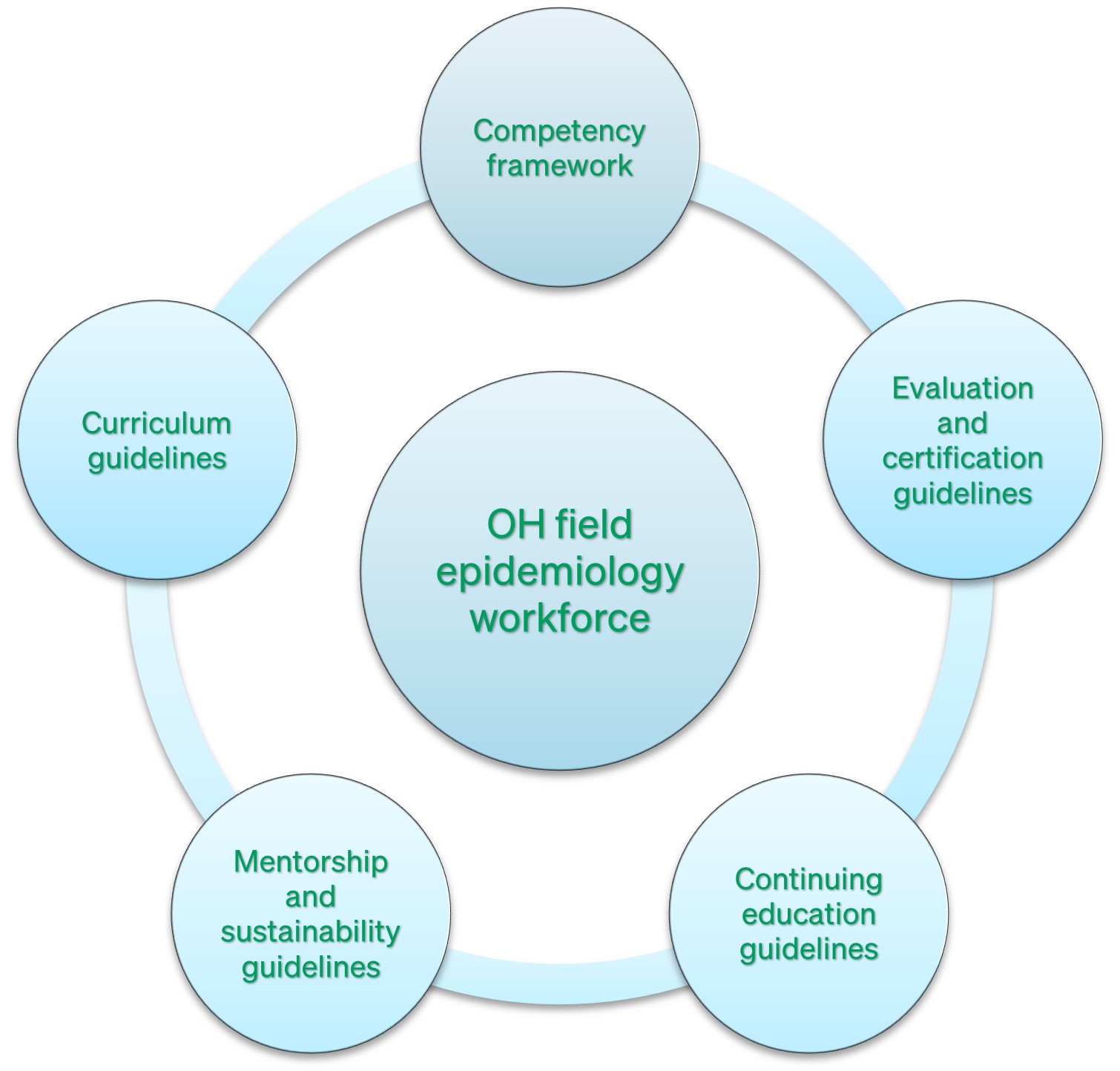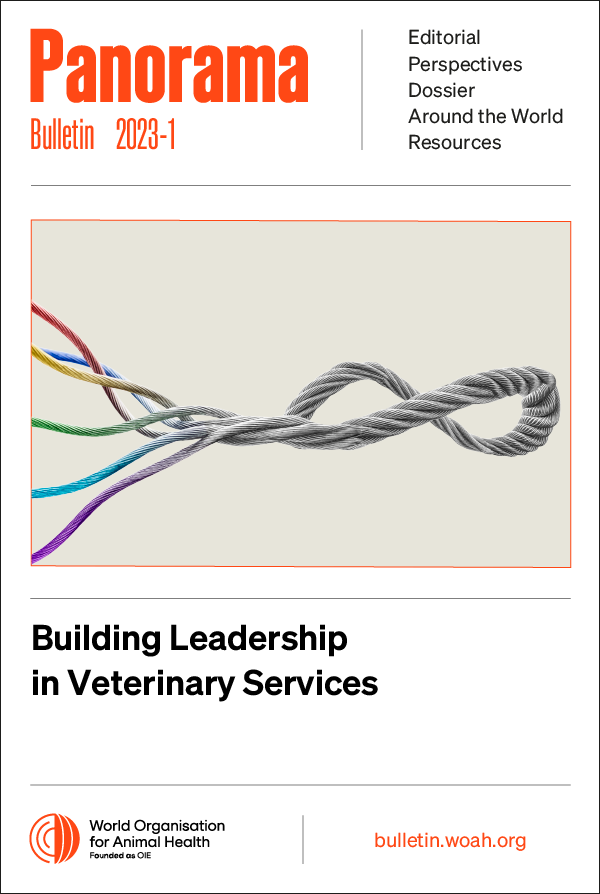Dossier Posted on 2023-02-22 15:47:58
One Health capacities for field epidemiologists: The FAO/WHO/WOAH competency framework
Keywords
Authors
Barbara Alessandrini (3)*, Christine M. Budke (3), Jessica Cargill (3), David Castellan (3), Silvia D’Albenzio (3), Navneet Dhand (1), Ravi Dissanayake (1), Stacie Dunkle (2), Marion Muehlen (2), Julio Pinto (1), Karl Schenkel (2), Heather L. Simmons (3) & Ahmed Zaghloul (2)
(1) Food and Agriculture Organization of the United Nations (FAO).
(2) World Health Organization (WHO).
(3) World Organisation for Animal Health (WOAH).
* Corresponding author: B. Alessandrini.
The designations and denominations employed and the presentation of the material in this article do not imply the expression of any opinion whatsoever on the part of WOAH, FAO or WHO concerning the legal status of any country, territory, city or area or of its authorities, or concerning the delimitation of its frontiers and boundaries.
The views expressed in this article are solely the responsibility of the author(s). The mention of specific companies or products of manufacturers, whether or not these have been patented, does not imply that these have been endorsed or recommended by WOAH, FAO or WHO in preference to others of a similar nature that are not mentioned.
Although more than 100 field epidemiology training programmes for human and animal health are already being implemented in more than 165 countries, internationally accepted competencies for field epidemiologists working in animal health, public health or environmental health within a One Health context have not yet been established.
A One Health (OH) field epidemiology competency framework was designed by the Food and Agriculture Organization of the United Nations (FAO), the World Health Organization (WHO) and the World Organisation for Animal Health (WOAH), to support the human, animal and environmental health workforce in developing collaborative capacities to be applied at the frontline, intermediate and advanced levels of expertise.
 The competency framework – encompassing 10 technical and 4 functional domains – describes the knowledge, skills and competencies required at the three levels and classifies them as minimum core competencies or optional competencies under a One Health approach, in addition to sector-specific competencies for human, animal and environmental health.
The competency framework – encompassing 10 technical and 4 functional domains – describes the knowledge, skills and competencies required at the three levels and classifies them as minimum core competencies or optional competencies under a One Health approach, in addition to sector-specific competencies for human, animal and environmental health.
A prioritisation tool was also designed to facilitate country-level prioritisation of competencies in the framework and may lead to harmonised competencies at regional and subregional level, thus also enabling worker mobility.
The competency framework is complemented by guidelines on curriculum development, mentorship and sustainability, continuing education, and graduate evaluation and certification.
The OH field epidemiology framework, tool and supplementary guidelines are intended to provide guidance to ensure that epidemiologists can work within the OH approach with the goal of assisting countries in assessing and improving the quality and scope of their field epidemiology training programmes.
The quality and comprehensiveness of the proposed framework are being assessed by a Technical Advisory Group consisting of more than 60 international experts, representing all geographical regions.
The competency framework and its accompanying guidelines are expected to be published in 2023 and are likely to be piloted in 2024–26 to evaluate their effectiveness in the field.
| The project was sponsored by the United States Department of Defense, Defense Threat Reduction Agency (DTRA). The content of the information does not necessarily reflect the position or the policy of the Federal Government of the United States, and no official endorsement should be inferred. We would also like to acknowledge the United States DoD DTRA Cooperative Threat Reduction Program’s support of project HDTRA1-19-1-0046 ‘Strengthening Capabilities for Epidemiology and Biosurveillance’. |
https://doi.org/10.20506/bull.2023.1.3393










